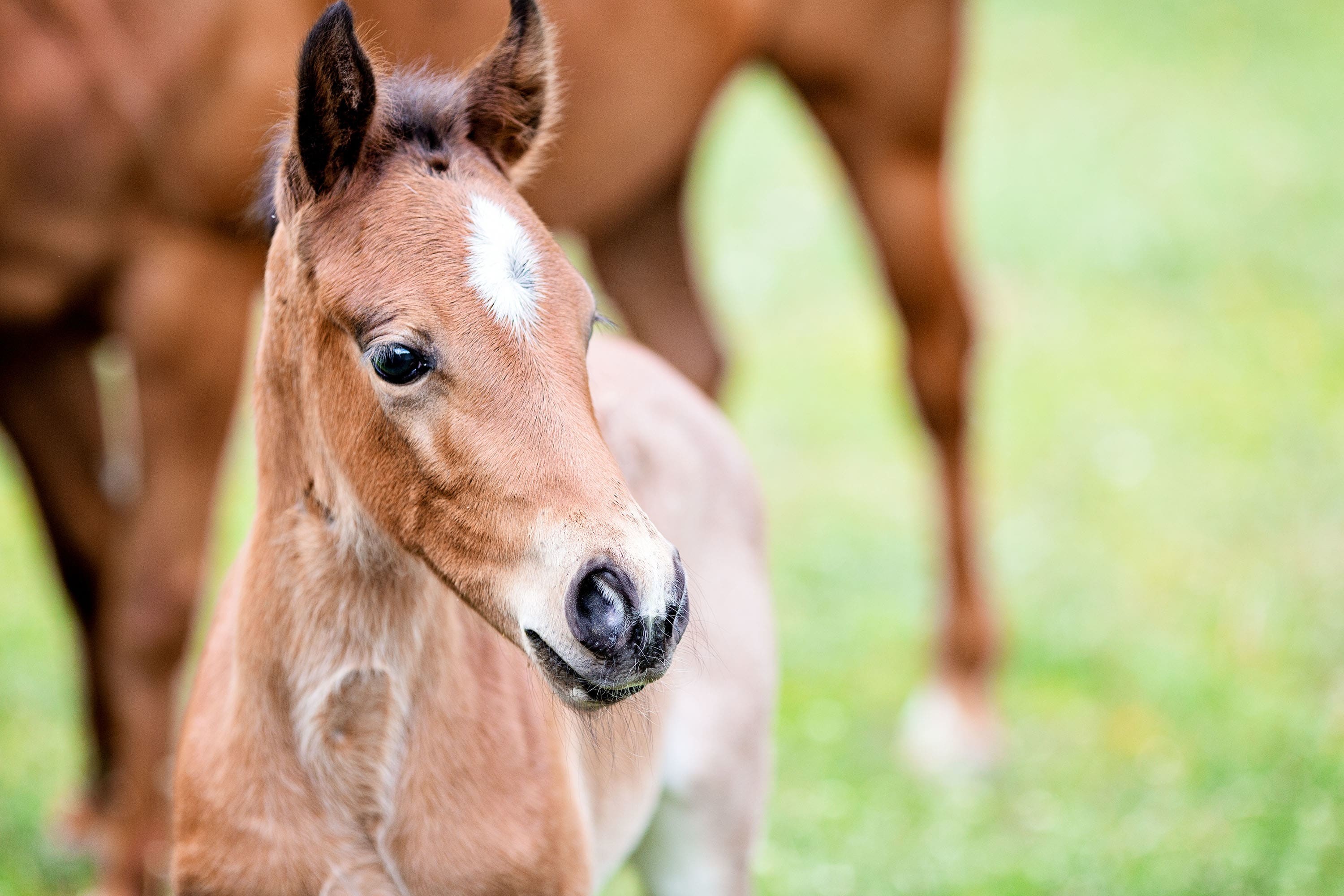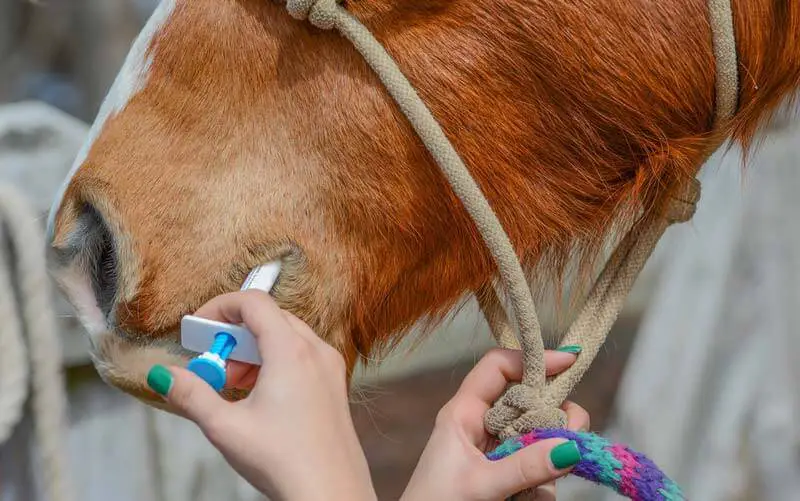
Without vaccinations and deworming, your mare is exposed to harmful conditions that can place her health — and the health of her growing foal — at risk. In this article, we discuss the vaccinations and deworming protocols every mare requires during pregnancy.
Vaccinations
At any stage of pregnancy, your mare may encounter illness or injury. Preventative measures, such as vaccinations, aim to avoid the devastating consequences that may arise, both for her and her unborn foal. Of these, the most important are:
- Tetanus
- Strangles
- Equine herpes virus
- Hendra virus
2-in-1: Tetanus and Strangles
Within the first two hours of life, your newborn foal is completely reliant on acquiring antibodies from colostrum to provide them with immunity against disease.
Vaccination against tetanus and strangles — commonly given together in the 2-in-1 vaccine — four weeks prior to foaling will provide your foal with adequate supplies. Following birth, monitor their intake of colostrum carefully to ensure they consume it without any problems.
Equine Herpes Virus
If equine herpes virus poses a risk on your property, vaccination against strains EHV-1 and EHV-4 is recommended.
However, the need to vaccinate against equine herpes virus should be assessed in the early stages of your mare’s pregnancy, particularly as EHV-1 can cause abortions in pregnant mares. Vaccination is usually done at five, seven and nine months of gestation.
Finally, if cases of hendra virus have been reported in your region — or if bat populations are present — vaccination against hendra virus is advised.
Mare owners in Queensland and New South Wales should seriously consider the best interests of their mares and foals when making the decision to vaccinate. The hendra virus is 100% fatal for horses, as any horse diagnosed with hendra virus is required to be humanely euthanised.
Deworming
With anthelmintic resistance on the rise, targeted deworming must be implemented to reduce the burden of internal parasites in your mare and foal. In consultation with your veterinarian, you should develop a deworming strategy to target:
- Ascarids
- Cyathostomes
- Small strongyles
- Large strongyles
- Tapeworms
- Pinworms
- Threadworms
As foals and young horses are particularly susceptible to these parasites.
Your deworming strategy should follow on from your plans prior to breeding. However, a faecal egg count, followed by a faecal egg count reduction test, will help you to refine your deworming strategy during your mare’s pregnancy.
Depending on the parasites present in your mare, deworming will take place at various points through pregnancy, with a final dose four weeks prior to foaling highly recommended.
Be mindful that deworming should be avoided within the first 60 days of gestation. During this time, the unborn foal is developing their major internal organs — a process called organogenesis. While deworming may not have adverse affects, the risk of drug interference simply isn’t worth it.



